Normal Behavior for a One-Year-Old
It seems like just yesterday your child was a sweet, cuddly, perfect little baby. And then she turned one and became… a toddler. You may be feeling a bit concerned about some of her new toddler behavior.
Don’t worry! She’s still that same sweet, cuddly, perfect little angel.
She’s just a little more… opinionated now.
And guess what? You can relax, because that’s totally normal.
Disclaimer: This is not a comprehensive behavioral-developmental synopsis. Rather, it’s a cheat sheet outlining broad toddler behavior norms for what you can expect as far as a one-year-old’s capabilities and conduct.
Between 12 and 24 months (right now!), your child’s cognitive abilities will explode.
You’ll probably notice major changes between 12 months and 18 months, and then again approaching the two-year mark.
For example, in comparison to one-year-olds, 18-month-olds are more likely to be resistant to change or transitions. Why?
Because they know what they want and when they want it (and also what they don’t want — like leaving the park when you say it’s time to go home), but they aren’t yet able to communicate their wishes to you — not in words, anyway.
They will tell you what they want — and don’t want — through crying, kicking, and that amazing way they arch their backs so you can’t pick them up (seriously, the back-arch-from-hell is the bane of every toddler parent’s existence).
And if you think your child is giving you extra trouble around his half-birthday, you’re not imagining things: according to the Gessell Institute, children from ages 1-3 tend to go through times of “equilibrium” around whole years (1, 2, and 3) and “disequilibrium” around half-years (1.5, 2.5, and 3.5). You may find your little dear to be sweet as they come at age one and again at two, and a total terror at one-and-a-half and two-and-a-half.
Toddler behavior is fascinating, right? Just know you’re not alone; it’s all part of the growing up game.
Toddler Behavior: Emotions, Amusements, and Language
It’s true: one-year-olds are like puppies… they’re only able to experience emotion in simple forms at this age, which equates to primitive kinds of affection, jealousy, sympathy, and anxiety.[1] Add to that: they don’t have much, if any, emotional control. They may just want to be held ALL the time.
See? You’re not crazy!
One-year-olds’ feelings tend to be erratic and unpredictable, and they’re already capable of violent, sudden displays of temper. Good thing they don’t have Twitter accounts — because that could be trouble…
One-Year-Old Mood Swings
One-year-olds are passionate little buggers. They act, move, and communicate with their entire bodies; you may notice they will turn around to look at something, rather than turning just their heads. In addition, they’ll often use their whole bodies to convey their emotions (happiness, sadness, anger, distress, etc.). That’s why your toddler will throw herself on the ground when you take away something she wants.
On the plus side, this is why you might catch your one-year-old CRACKING UP at something moderately amusing, like a funny noise or a new trick.
However, this also means that full-blown temper tantrums may erupt over the most trivial issues (how dare you take that sharp knife out of her hands? Didn’t you know how much it meant to her?! Her life is ruined!).
If you want a laugh, check out some of the many “reasons my kid is crying” montages out there on the interwebs. (I guess this doesn’t stop after the first year…)
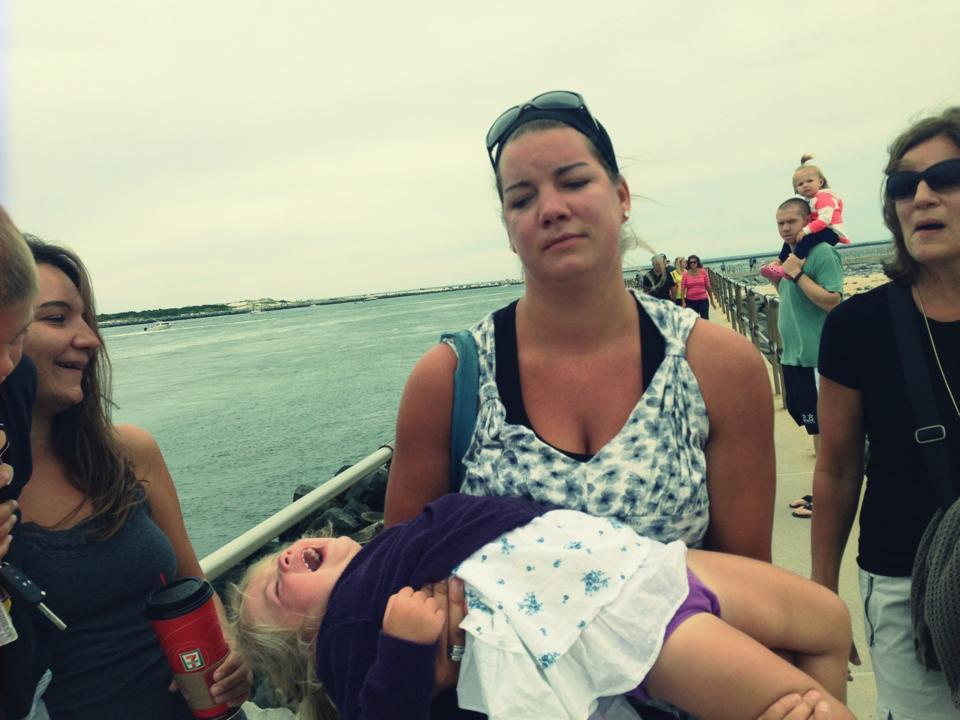
As you can see, the toddler behavior associated with the “terrible twos” often emerges much earlier.
Amusements
Ok, enough of the [ahem]… challenges. Let’s talk about what makes one-year-olds happy!
One-year-olds enjoy opposites and conclusions (i.e., closing things, things falling/hitting the ground… hence, that toddler game parents just love of throwing all their food on the floor).
They also like repetition (is there a Guinness Record for the number of times in a row reading Harry the Dirty Dog?), so don’t be surprised when they do the same thing over and over and over. (FYI, this fondness for repetition is one reason why so many experts tout routines as a go-to with young children.)
Language
Language comprehension will absolutely explode during this year. At one, a child might only understand one or two simple commands (like “no” or “stop”), but by 18 months, you can bank on your child understanding most of what you say (it’s time to start watching your mouth — your grace period is coming to an end!). In fact, her level of language comprehension will far exceed her own vocabulary.
Still, one-year-olds will not be able to follow rational explanations. Although they may be beginning to understand cause-and-effect in a rudimentary fashion, they have no common sense and cannot comprehend or perceive the concept of physical danger. Telling my son that scaling the wall of our second-story deck is a “no-no” because he could fall and get hurt isn’t going to convince him to stop trying, for example, but bringing him inside every time he starts climbing just might.
Just to reiterate, there’s nothing in their little brains that will tell them not to run into a busy street, for example (it’s amazing the human race has evolved this far, no?).
One-year-olds will also start to remember things that have happened before, although their memories certainly won’t be as keen as an adult’s or older child’s.
Another small-but-useful tidbit: by one, a child’s eyesight is about as good as an adult’s… so hide your chocolate stash somewhere out of sight!
Senses and the Self
Me and… Me
A one-year-old basically doesn’t grasp that others exist as separate beings. He doesn’t understand that what he does can impact someone else, or that he even has control over his own behavior. As a result, a one-year-old is incapable of compassionate consideration (yes, what you suspected is true). Thus, they are naturally self-centered, only relating to other people when they feel like it. The result: a tiny human with “almost unbelievable egocentricity.” [2]
Furthermore, one-year-olds aren’t able to easily adapt to what’s going on and aren’t able to obey our requests. For example, they can’t “be quiet!” on cue, and they don’t transition easily from one thing to the next when we need them to… hence, “transition time” becomes a classic problem area at this age (e.g. leaving the playground to go home). You could sum this up by saying that one-year-olds are naturally uncooperative, but through no fault of their own. Hah.
Independence
Starting around 18 months (and continuing until about age three), the tension between independence and dependence is an ever-present theme. Once toddlers can string words together to form sentences, “do it myself” may become a familiar phrase!
Another way to think of this is the “need-reject syndrome”: your child may demand you one minute and reject you the next… constantly going back and forth. It’s a push-pull scenario, and it can be incredibly frustrating (and maybe even hurtful), but I promise you, it’s normal.[3] (We expand on this autonomy/dependence tension more in our piece about two-year-old norms.)
One-year-olds are sensory beings. For the most part, they learn by physically doing and experiencing things. They tend to “think with their feet,” often noticing other things only after they have bumped into them, for example.
They are “pure motor drive,” and run around rapidly and randomly. They are impulsive. (This also makes them really entertaining; it’s sort of like watching tiny, drunk — and sometimes belligerent — sailors.) Their attention spans are quite short, and they don’t tend to stay in one place, or with one activity, for very long (so do yourself a favor and don’t expect them to).
Social Interaction (or Lack Thereof) and Play
So, we talked about how one-year-olds live in a world where only they exist, but when they do express intimacy towards others, it’s almost strictly limited to their caregivers. Beyond that, they don’t really care for (or about) others.
When you have a one-year-old, you basically have a little sociopath running around your home (a cute sociopath, but a sociopath nonetheless)…
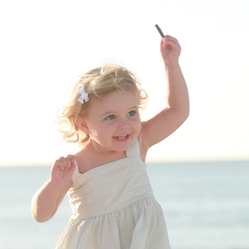
As such, “social behavior” at this point is all but nonexistent.
At this age, most interactions with others entail making demands — one-year-olds mostly see other people as a means to get what they want. Even in a group of children, they will remain rather isolated and play on their own, next to others. This is called parallel play and is very typical toddler behavior.
I know you’re just hankering for a playdate where your little one actually plays with your friend’s kid, but at this age, it’s probably just not gonna happen. In fact, most one-year-olds hardly pay any attention at all to other kids, except perhaps to the objects they possess, or as something that needs to be pushed out of the way.
Toddler Carjacking
When Lucie was one, we’d take her to the local park. One time, an older toddler brought a cool ride-on car. After Lucie zero’ed in on the car, she marched right over to the kid, shoved him off (Grand Theft Auto-style) and amid the screams of the victim, took off in the car.
Toddler carjacking, you guys. They don’t mean to inflict harm, but they won’t stop at anything to get what they want!
Word to the wise, parents: if you bring cool sh!t to the park that can’t be shared, you’re just inviting trouble!“That’s MY car, dude — get out!!”
Most toddlers this age actually relate better to adults than children — they’ll babble at grown-ups, for example, but almost never with other kids.
Not to belabor the point, but it’s important to know that the typical child simply isn’t interested in other children, and if he is, he perceives them more as objects to be explored.
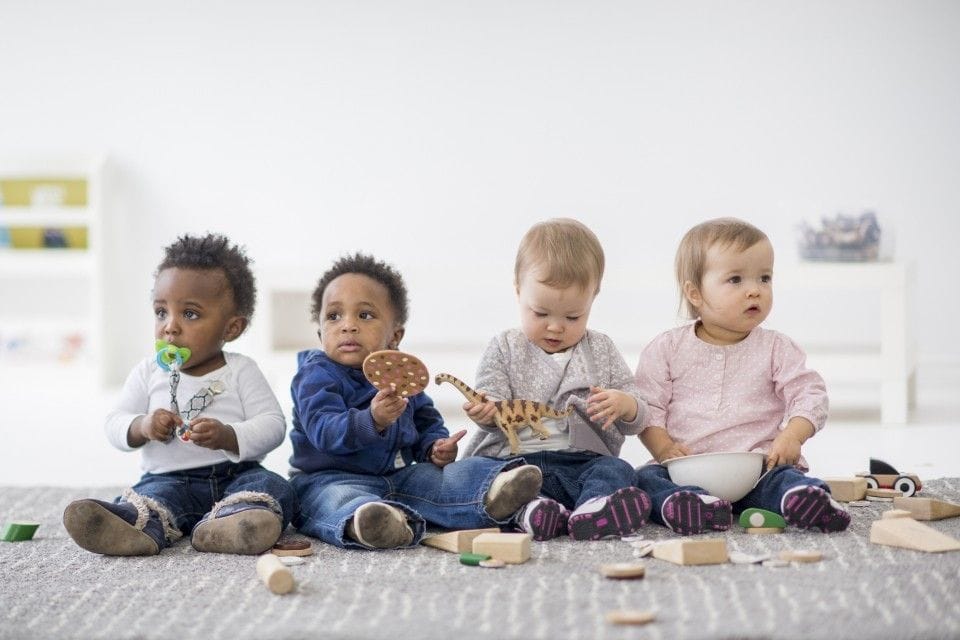
Marissa noticed this often with her 18-month-old twins. They poked and prodded at each other, pushed each other down, tugged each other’s hair, but (much to her dismay) almost never communicated or played in any real, “aww, look at that twin bond!” kind of way.
Thus it’s common toddler behavior for one-year-olds not only to ignore other children, but also to hit, push, or generally be rough with them. They aren’t terrible people; it’s just part of the exploration drive. Some experts say that one-year-olds can’t differentiate between people and things, and that they can be just as destructive to other kids as they are to objects (like that fancy glass vase from your wedding you probably should’ve placed out of reach…).[4]
BTW: it’s also a good idea never to leave toddlers alone with pets at this age, because a one-year-old may unintentionally harm a cat or dog; in fact, this is how many dog bites occur.
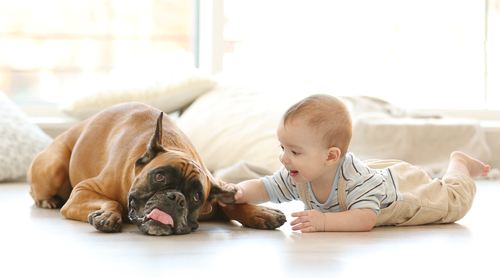
Another important toddler behavior expectation not to have: do not expect your one-year-old to share. At all. Not going to happen. You don’t need to be that over-explaining mom in the sandbox saying, “Oh Brixley, you need to share!” Nope, you’re off the hook!
Once we accept what is to be expected (and not!) for each age group, we can remain calm when they violate social norms. It may be embarrassing to you, but if others know (or have had) kids of their own, don’t worry — they get it!
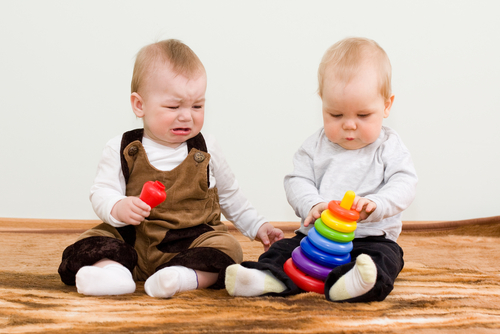
Does that mean we should let our one-year-olds terrorize others at will?
When do we start teaching manners?
The thing is: kids won’t “get” manners until around 3, shortly after they begin experiencing empathy, although they can begin learning certain social habits at a younger age. Hence, you can literally train your child to say things like “please” (sounds more like “peeez”), “thank you,” “hello,” “goodbye,” etc. as early as one, although he probably won’t understand the concept of manners until later.
Now that you know what is considered “normal” cognitive, social, and developmentally appropriate behavior for a one-year-old, here’s a brief rundown of behavior that may warrant a discussion with your child’s pediatrician:
– Doesn’t show interest in others
– Doesn’t make eye contact
– Doesn’t smile
– Doesn’t babble by 12 months
– Doesn’t turn to see where a sound is coming from or react to loud, atypical noises
– Doesn’t like being touched
– Doesn’t point out objects she’s interested in
– Doesn’t wave by 12 months
– Doesn’t use single words by 16 months or two-word phrases by 24 months
– Loses verbal or social skills – used to babble or smile at others and now doesn’t
– Tunes others out and withdraws into his/her own world
Some of these signs may indicate a delay or a more serious problem — or it could be nothing at all. To know for sure, please discuss with your child’s pediatrician.
In Conclusion
So parents, here’s what you need to remember: holding reasonable expectations for your one-year-old’s behavior, social skills, and general conduct is your first step toward maintaining your sanity and setting your child (and you) up for success. The truth is that one-year-olds are oftentimes little assholes — but they’re so cute, it’s okay! Haha.
It’s important to keep these behavioral generalizations in the back of your mind when it comes to experimenting with a disciplinary approach that works for you. When you’re ready, you can check out our tried-and-true disciplinary techniques for toddlers.
Good luck, stay strong, and enjoy this precious (yet challenging) new world of toddlerhood.
Written and edited by Brit, Marissa, Meg, and Alicia ~
Back to: Toddlerhood
See also: Fun Activities for your 13 -month-old
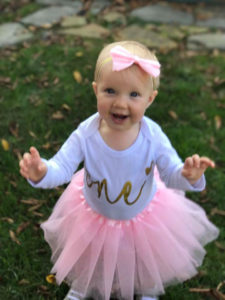
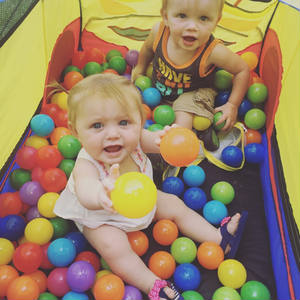
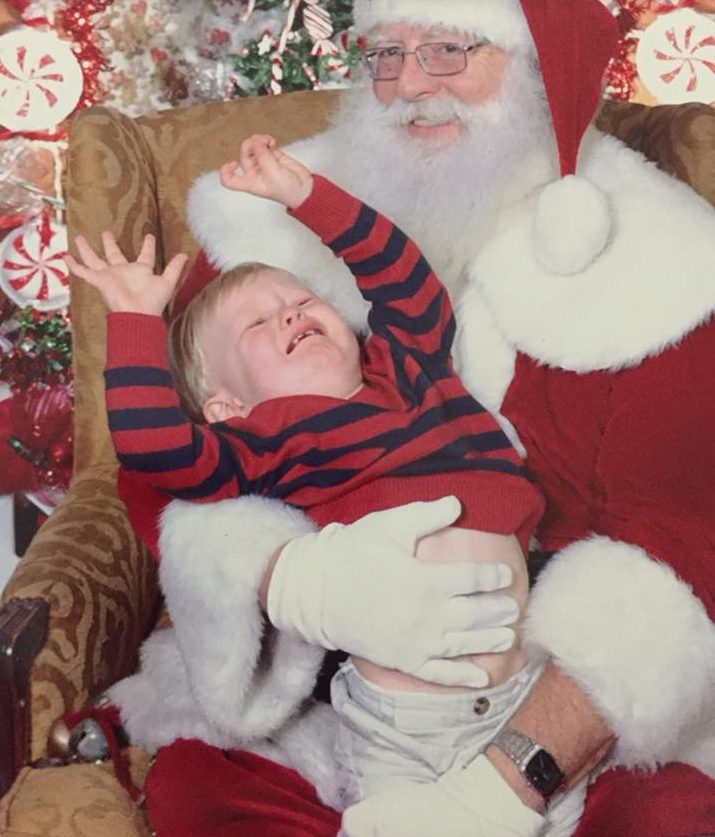

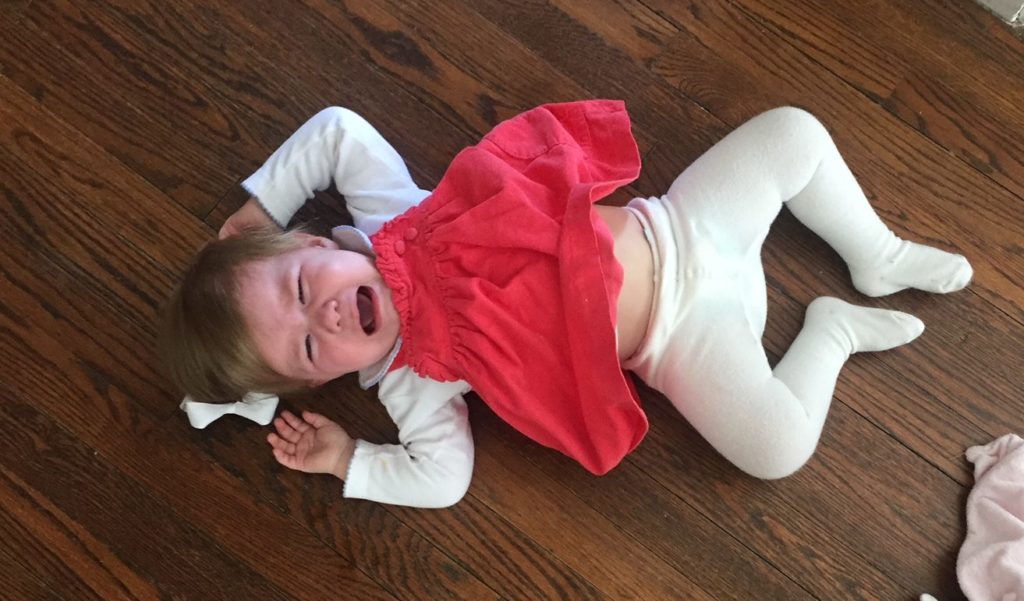

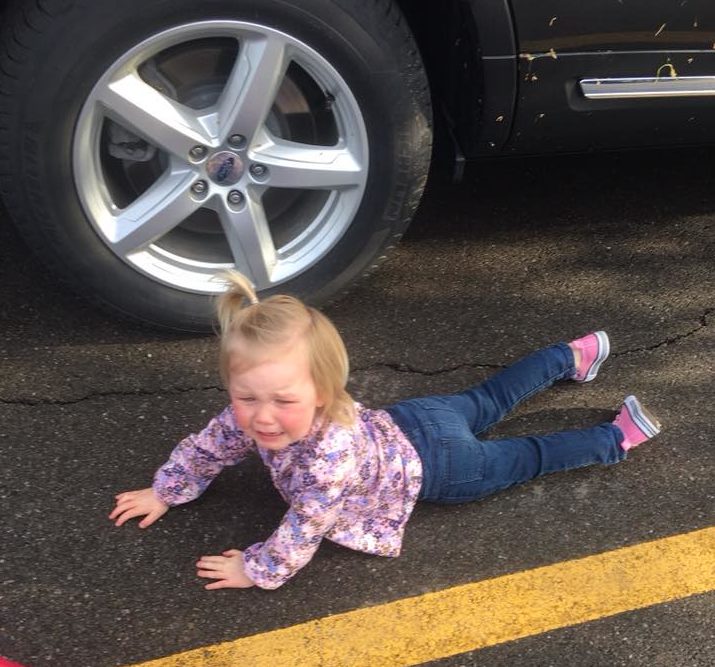
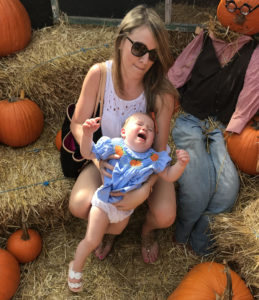
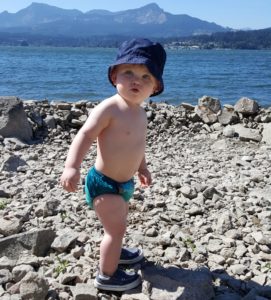
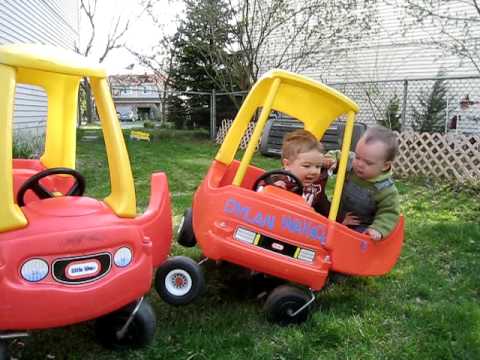
Then, do you think it is important for them to have social time with other kids? We thought it would start becoming important around now (15 months) for our son to start a daycare program. Not only did we think it would be good for him, but also give me a break. Is this incorrect?
Danyelle — Sincere apologies for the delayed response. Hope this isn’t coming too late! In reality, anytime is a great time for babies/toddlers to start at daycare — even though they may not be playing “together” with other children, the time spent in the company of other children and adults has myriad benefits related to socialization. And — there’s no way to quantify how healthy it is for you to have a break! (My first started part-time daycare at ~18-20 months and my second did at 7 months, just FYI.)
Loved the article
Wow, this was all amazing information . Thank You 😊
Is it normal for a one year old to be seriously calculatingly mean? Like, you can see them thinking it over before they straight punch or hit you with reason or no reason at all? Also, say your drawing with them and they purposely scratch out what you drew, or you are playing with them and they nonchalantly come over, take your toy, go hide it and then sit back down and play with their toy? I feel like my son is far beyond his age with his mean smarts. He has been this way since around the time he started walking (11 months) and has gotten worse (19 months now) Just wondering if this is normal or is he really a sociopath? Haha
Thank you
Hi there! My mom answer would be – yes, very normal! His actions may seem “mean” to us as adults, but if you do a lot of child development research, they are very normal behaviors for young children. They are pushing boundaries often to see what is acceptable. My son was the same way, too smart for his age. Check out the book “Raising Your Spirited Child.” My more political answer would be to run this by your pediatrician to see if he thinks maybe some counseling might help. Best of luck to you!
Wow, thanks for all the tips. We’ve just crossed the magical one year line and I’m expecting the worst… We’re already dealing with the next sleep regression, although knowing both Susan Urban’s books (the one from http://www.parental-love.com) on the topic it’s pretty easy to handle. We also observe the first signs of crazy temper! Also, thanks a lot for a tip on not-sharing, that’s been bothering me lately.
Thank so much for this – reading this has literally saved my sanity today!! Xx
Thanks for this – as an early childhood teacher my sole working experience is 2-3year olds…I wasn’t expecting the tiny person big feelings so early! Or how different it is when it’s your OWN tiny human and it’s 24/7. This was enjoyable to read and oh so on point. I hate when I get told my 15 month old is clingy, yup totally normal for him to not want a bar of strangers. He’s totally happy and relaxed with me and his Dad and his interest in others will come in due time, but there is nothing wrong with him sometimes wanting to be held/cuddled the whole time if he’s somewhere overwhelming or with people he doesn’t know well in the house (that was my google question that I happened onto this article!). Thanks for all the helpful info 🙂